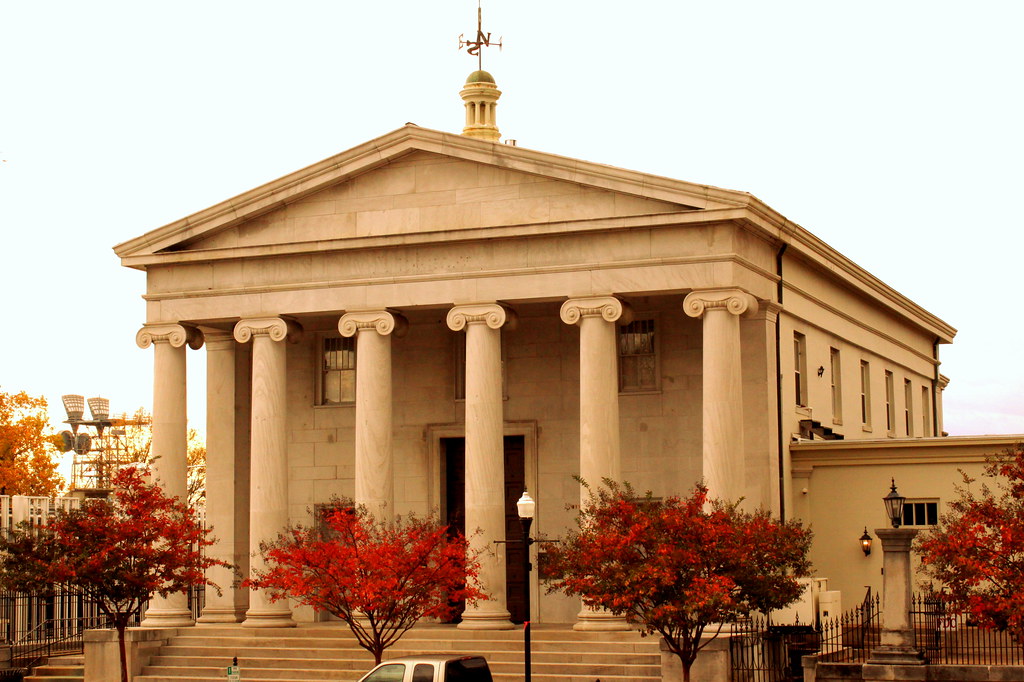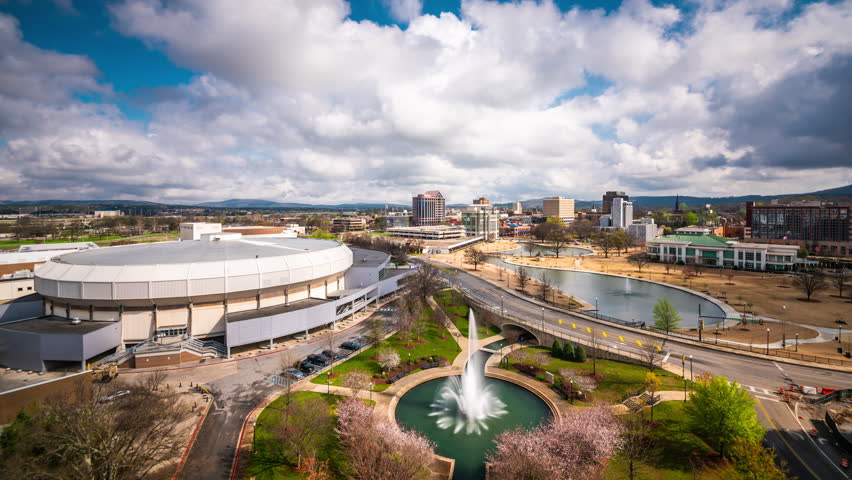Huntsville, Alabama
History Founded in 1805, Huntsville, Alabama, is one of the state's oldest cities and has played a vital role in both the region’s economic and historical landscape. Originally named Twickenham after the English home of poet Alexander Pope, it was renamed to honor John Hunt, one of its early settlers. During the Civil War, the city’s strategic location made it a center of Confederate and Union interests. Huntsville later evolved into a hub for cotton trading and textiles. However, its most transformative period began in the mid-20th century with the establishment of the Redstone Arsenal and NASA’s Marshall Space Flight Center. These institutions attracted scientists, engineers, and military personnel, earning the city its nickname "Rocket City" and establishing it as a key player in aerospace, defense and technology.
Growth and Demographics
Huntsville’s growth accelerated with its military and space programs in the 1950s and continues today as a rapidly expanding metropolitan area that has become a prosperous tech hub. The city proper boasts a population of approximately 230,000, making it Alabama's largest city; Huntsville Metro Area holds over 500,000 people. One of the most recognized cities in the Southeast, it is consistently named as one of the best places to live and work by different national publications, offering a variety of educational, recreational, and cultural opportunities. The city boasts a relatively young median age of 36, reflecting a dynamic, growing workforce. Its population is racially diverse, with about 60% White, 30% African American, and a growing Latino community, which numbers around 25,000 residents in Madison County alone and over 40,000 in its metro area. Latino immigrants contribute to Huntsville's cultural and economic fabric, with many employed in industries like construction, manufacturing, and services. However, language barriers, immigration issues, and access to healthcare and legal support remain critical challenges for the Latino population. While crime rates in some parts of the city remain higher than the state average, overall, Huntsville is considered safer than other large cities in Alabama.

Economy
Huntsville stands out as a key economic driver for Alabama, contributing significantly to the state's GDP through its defense, aerospace, and tech industries. While cities like Birmingham and Montgomery serve as traditional industrial centers, Huntsville’s focus on innovation, science, and technology sets it apart, positioning it as a national leader in these fields. The city’s emphasis on research and development not only boosts local employment but also attracts talent from across the country, further cementing its status as a hub for high-skilled jobs and contributing to a relatively high median household income. This dynamic economic environment has spurred significant growth in the surrounding metropolitan area, influencing the broader region. Home to several Fortune 500 companies, Huntsville also offers a broad base of manufacturing, automotive, retail and service industries. However, like many growing cities, Huntsville faces challenges.

Social Challenges
Despite Huntsville’s economic success, social disparities persist, particularly in terms of income inequality, affordable housing, and access to education and jobs. Huntsville has a poverty rate of 13.9%, which is lower than the state average of 16.2%, but challenges persist, particularly for minority communities and recent immigrants. The poverty rate is notably higher among those without a high school diploma (30.4%) compared to high school graduates (9.5%). Rapid population growth has driven up property values and rent prices, putting a strain on affordable housing, particularly for lower-income residents. Additionally, public schools in lower-income neighborhoods often face underfunding and struggle to provide the same level of educational quality as schools in wealthier areas. Moreover, about 24% of young residents (ages 15-24) are not engaged in employment, education, or training, further exacerbating socio-economic inequality.
Migration and Immigrant Integration
Huntsville's immigrant population has grown in recent years, particularly from Latin America. Immigrant families, many of whom work in the service, construction, and manufacturing sectors, contribute significantly to the local economy. Latino immigrants have been pivotal in Huntsville’s continued growth, working in essential industries like manufacturing, construction, and hospitality. Companies such as Toyota and other local manufacturing firms employ a large number of immigrants, making this community a crucial part of the city’s workforce. Additionally, the rise of Latino-owned small businesses has enriched the city’s cultural and economic landscape, particularly in sectors like food services, retail, and transportation. Despite this, they face challenges such as limited access to healthcare, education, driver’s licenses and legal services due to immigration policies and language barriers, limiting mobility and job access.
Religious and Spiritual Landscape
Huntsville is home to a vibrant religious community, with both evangelical Christian and Catholic churches playing key roles. The growth of evangelical Christianity in Huntsville reflects broader state and regional trends, with numerous churches contributing to the spiritual and social life of the city. Churches are also essential players in addressing some of the city’s social needs, offering services such as food distribution and shelter. Despite the strong presence of religious institutions, Huntsville's churches are sometimes struggling to integrate new immigrant communities into their congregations and addressing their unique needs.

Engage in Huntsville with Us
Huntsville, Alabama, represents a unique blend of historical significance and forward-thinking innovation. Its rapid growth, driven by aerospace, defense, and technology sectors, has made it a thriving economic hub in the South. However, challenges related to poverty, housing, education, and immigrant integration remain. Its growing Latino population adds to its cultural and economic vibrancy but faces hurdles in integration and access to resources. As Huntsville continues to evolve, investment in education, affordable housing, and community development will be key to ensuring that all residents share in Huntsville’s prosperity. That’s why efforts by organizations like Arriba Huntsville play a crucial role in supporting immigrant communities, fostering greater inclusion, and addressing these challenges head-on.
Our Partners in Huntsville
Arriba Huntsville is a faith-driven community development corporation in Huntsville, Alabama, dedicated to incubating new organizations and initiatives and to supporting existing local ministries and...
Arriba Huntsville es una corporación de desarrollo comunitario impulsada por la fe en Huntsville, Alabama, dedicada a incubar nuevas organizaciones e iniciativas y a apoyar...
